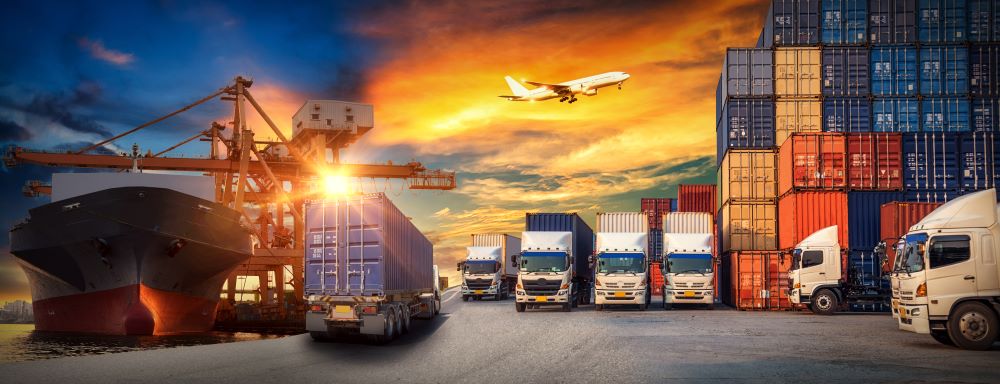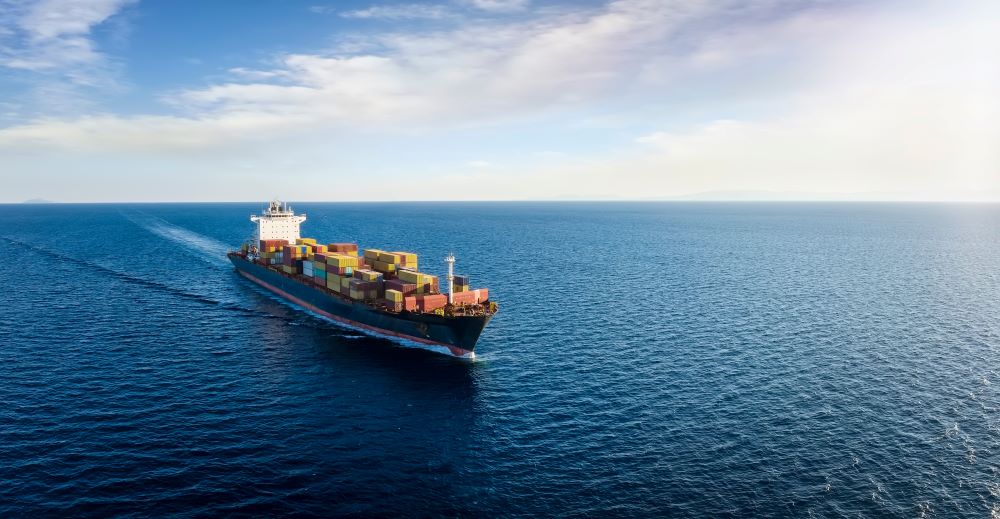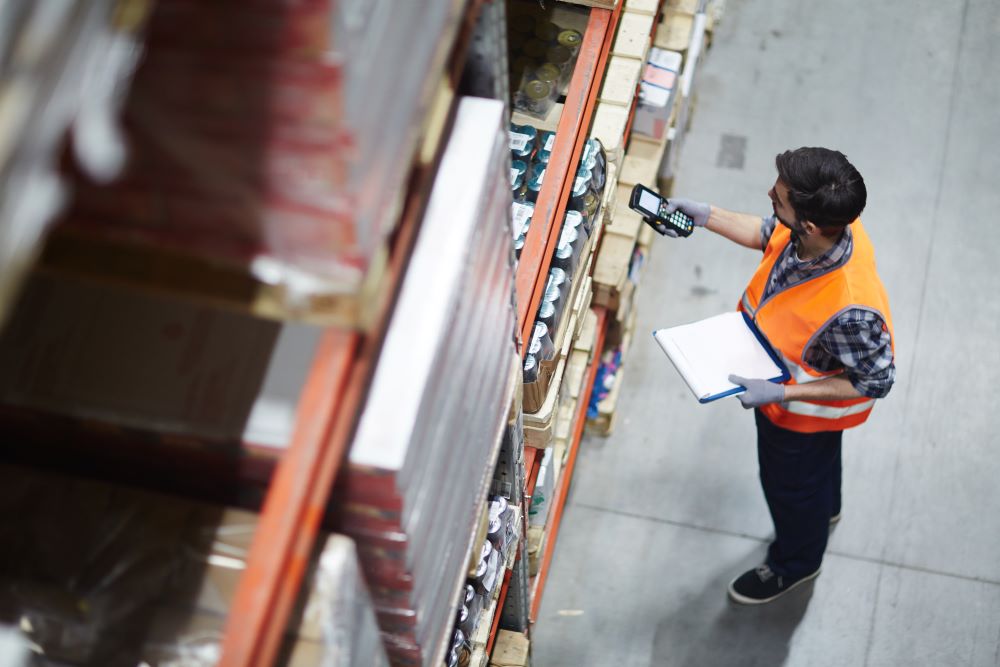2024.06.19
Why is cargo insurance important?

“Prevention is better than cure”. You have probably heard this adage countless times, perhaps not understanding the true meaning of the expression. What if we apply it to cargo shipping this time around?
Insurance often has a rather negative connotation, both in terms of price and real interest. However, insurance can be extremely useful in many circumstances, especially when it comes to cargo insurance.
In this article, our shipping experts explain everything you need to know about cargo insurance.
What is cargo insurance?
Cargo insurance is a contract between a transport company and shipper. This type of shipping insurance is intended to provide peace of mind to the policyholder. It is a legal protection that provides coverage and indemnifies your cargo in case of loss, theft or damage.
An increasing number of businesses that use shipping companies take out cargo insurance to guarantee the security (at least financial) of their goods. The type and cost of insurance can vary depending on the mode of transport used (see more below).
Why is cargo insurance important to have?
Cargo insurance is useful to avoid material and financial losses in the event of a claim or other unforeseen incident incurred by the shipping company. It protects the real value of your cargo and compensates you appropriately.
Moreover, depending on the method of transportation, the risks will vary (e.g., sea transport and risk of general average loss) and a considerable cost will be incurred in the event of loss.
Who insures the carrier’s liability?
Regardless of the cause and nature of the damage to your cargo, the carrier is presumed liable. This liability comes from the carrier’s obligation of result, which obliges them to transport cargo safely. The liability also exempts the shipper or the consignee from having to prove that the carrier was at fault.
However, keep in mind that the carrier’s liability is limited by national and international treaties that may be less than the value of your goods.
Furthermore, the carrier’s liability is limited internationally by the Warsaw Convention. For more information, please ask your logistics consolidator about their Terms and Conditions of carriage.
What are Incoterms in shipping?
Incoterms are rules that define the responsibilities of the buyer and the seller. They constitute a set of international standards recognized by customs authorities and courts. Incoterms define the parties (buyers and sellers) in a commercial transaction and reduce the risk of misunderstandings and legal disputes.
As such, they determine whether you need to take out transport insurance. There are 11 Incoterms, each indicated by a 3-letter code and grouped into 4 categories according to the first letter of their designation.
Why use CIF Incoterms?
CIF is one of the 11 Incoterms and stands for:
- Cost = cost/invoice value (purchase cost if your customer is the buyer or selling price if seller)
- Insurance = Insurance premium
- Freight = Freight and related costs (customs clearance)
CIF requires the seller to enter into the contract of carriage for the buyer and to take out insurance on the buyer’s behalf to cover cargo during transit. This Incoterm requires the seller to assume most of the responsibility such as the transfer of risk, which occurs when the goods are shipped.
What types of cargo transportation require insurance?
There are several types of cargo insurance. In fact, there are as many types as there are modes of transport (land, sea and air, national and international).
It is important to know which category you fall into before taking out an insurance policy.
Here are the most common types.
Air cargo insurance
Air cargo shipping includes a wide range of guarantees. Considered as one of the most expensive modes of shipping, it also involves many transfers during shipment. Consequently, it makes sense to secure your investment with the right coverage.
Air cargo insurance will generally compensate:
- Material damages
- Losses
Check that your shipping company offers these services.
Sea cargo insurance
In general, marine cargo insurance is primarily intended to cover your cargo against delays, losses and damages, including general average loss of your cargo. This means that you will be compensated if the cargo should fall overboard. Otherwise, the cargo will be handled, stored and transported at the risk of the owner and consignee.
Land cargo insurance
There are many different types of land shipping and the risks vary to a greater or lesser extent depending on each. The more cargo transfers there are between the location of shipment and the destination (the number of times cargo is transferred from one vehicle to another), the more damage the goods are exposed to.
When shipping cargo by truck, it is recommended to take out a comprehensive cargo insurance policy, since different carriers may provide partial or total coverage for your goods.
How to determine the premium for cargo insurance
Cargo insurance is undoubtedly useful in covering yourself against risks. However, you should keep in mind that there are exceptions to the rule.
This premium, expressed as a percentage of the insured value, will include specific conditions. This is the case for:
- The nature of the cargo: The amount of the insurance premium will vary according to the nature of your cargo. If we take the example of a work of art, it must be adequately insured to compensate the owner in case of damage (coverage from point A to point B). Most shipping companies will only reimburse $100 regardless of the actual value of the artwork if no insurance is taken out.
- Weight: A typical general insurance policy tends to limit loss or damage coverage based on weight. For example, shipments under 3 tons cannot exceed €33 per kilogram of gross weight of missing or damaged goods for each item in the shipment, and cannot exceed €1,000 per lost, incomplete or damaged package.
- Packaging: The purpose of packaging is to protect cargo during transportation, handling, storage and other stages of shipment. If your packaging is inadequate or poorly designed, it can cause damage and even if you have insurance, you may not be compensated.
- Mode of transportation: Each mode of transportation has its own risks, which is why it is common to have separate policies and varying premiums.
Contact Globex Worldwide Courier for more details on cargo insurance
While cargo insurance is not mandatory, it is strongly recommended. Your insurance provider will be able to give you more information about cargo insurance based on your business sector.
For any additional information, we invite you to contact our shipping experts. We will be glad to provide you with our expertise.


